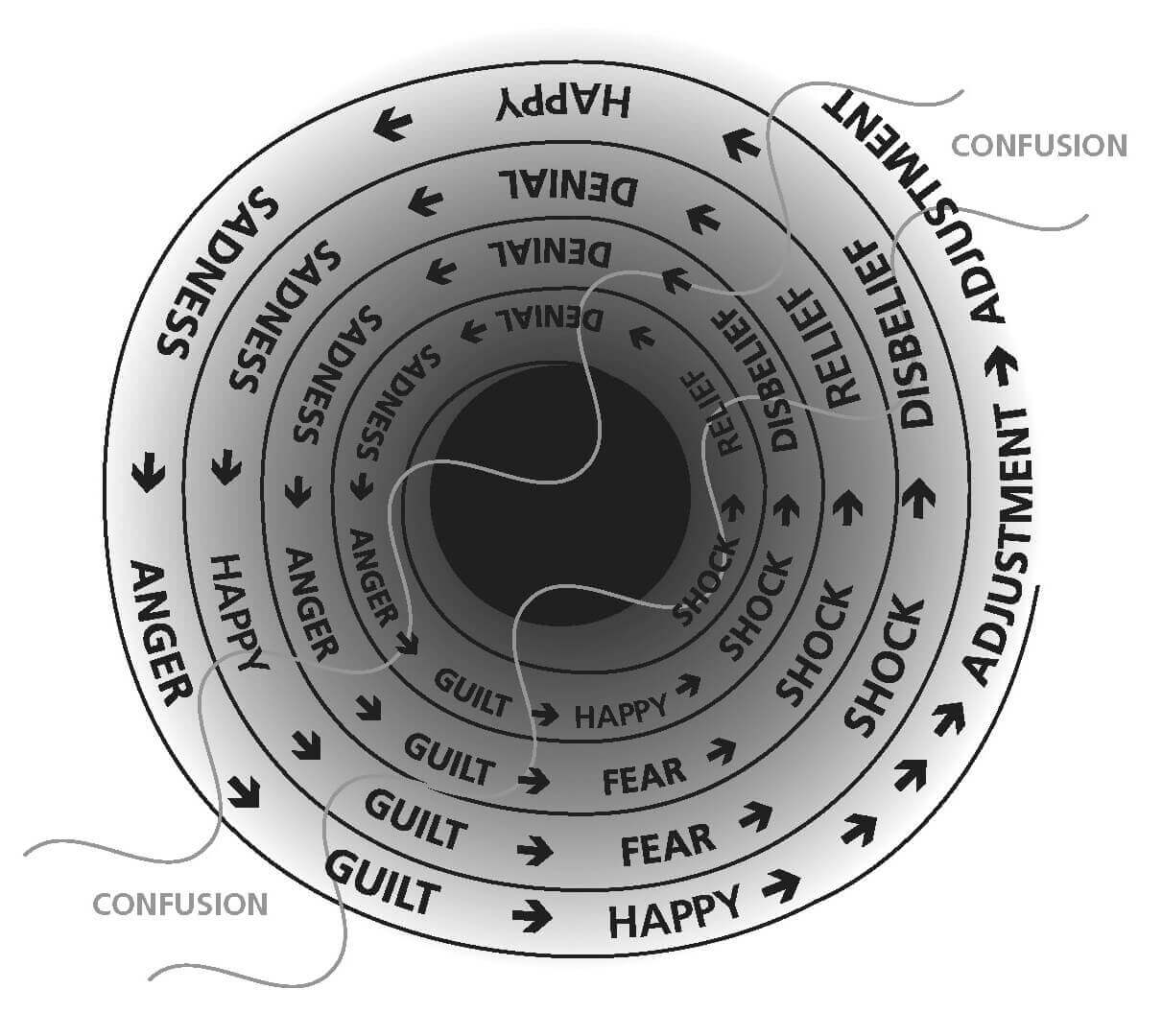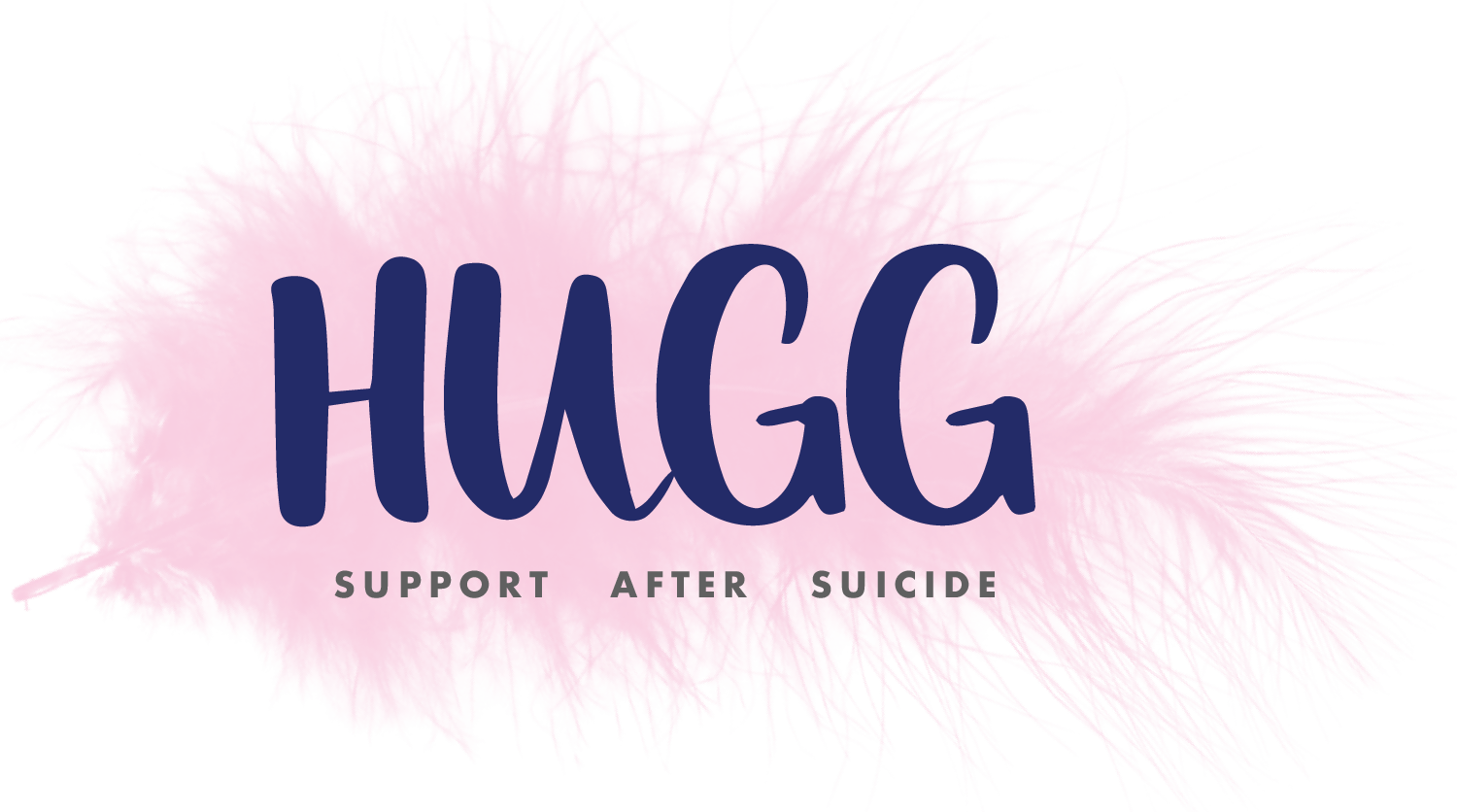
Bereavement by suicide shares characteristics with other bereavements and it is also different. Understanding how and why it differs is helpful when you are supporting people who have been bereaved.
Suicide bereavement carries additional characteristics which include:
· The circumstances of the loss
· Emotional and physical reaction
· Post-traumatic stress
· The suicide bereaved questions – “why?” and “could I have done something?”
· Stigma and isolation
· Family and community tensions
· Lack of privacy
· Investigations
· Practical concerns regarding finances, business, childcare etc.
Suicide loss can affect your physical and mental health and sometimes includes dealing with thoughts of suicide. The grieving process is often complicated and typically lasts longer than other types of bereavement – significant effects may still be felt for many years after the death. Each person will have had a unique relationship with the person who died – there is no single or correct way to experience bereavement. However, there are many common reactions and factors in bereavement by suicide.
Faced with a sudden, often unexpected and sometimes violent death, the suicide bereaved experience grief, which typically includes strong feelings of guilt, self-reproach and questioning – “why?”. Discomfort, shame and self-stigma associated with suicide can make it difficult to talk about. There may be further challenges to face which are not common to ‘normal’ bereavements e.g. inquests, media coverage, trauma reactions and difficult family relationships
Spiral of grief

Those bereaved by suicide often feel isolated at a time when they are hurting, suffering mental anguish and are vulnerable themselves to thoughts of suicide. Even those fortunate enough to have strong support networks can still feel alone, unable to share their true feelings for fear of their impact on others, particularly when they are also in a caring role for others who are bereaved.
Although the pain of suicide loss cannot be eased quickly, there are things that can help
· Take ‘a grief break’ for activities you enjoy – allow yourself time out from the pain you’re experiencing. It does not mean that you are not still grieving.
· Stay connected to your loved ones and supportive people around you. Don’t isolate yourself. Allow people to help you and tell them what you need from them.
· Find ways to honour the life of the person who has died e.g. assemble a memory box, photo album, keep a journal, share happy memories and talk about their life.
· Allow people to help you; don’t be embarrassed to accept help. People want to support you.
· Don’t be afraid to tell people how they can help, even it is just to sit with you and hold your hand in silence. Sharing with other people can reduce the sense of isolation and aloneness that comes with grief. Support can come from surprising sources.
· Stay healthy – try to eat healthy meals, walk in nature, avoid non-prescription drugs and keep alcohol to a minimum.
· Take naps – grief is exhausting. Rest when you can.
· Prioritise daily tasks, do only what is essential; be kind to yourself.
· Consider joining a support group to share with others who have had similar experiences. This will help you realise that you are not alone in your experience and that you will survive.
· Take opportunities to join in public ceremonies where you can be private, yet part of a larger group. You can use rituals and customs that are meaningful to you.
· Talk with a registered psychotherapist who has grief training, who will help you to process what you are going through, and to find support and comfort in expressing your grief.






